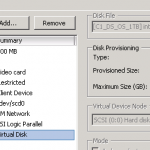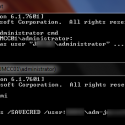Visit the page below to download the mkp package:
https://checkmk.de/check_mk-exchange-file.php?&file=linux-updates-1.0.mkp
Upload the mkp package to your check_mk server then install it :
OMD[mysite]:~$ mkp -v install linux-updates-1.0.mkp
On the servers to be checked add the check shell script.
cd /usr/share/check-mk-agent/local
vi mk_linuxupdates.sh
The code for the check is within the download but shown here too:
!/bin/bash updateLogFile="/var/log/yum.log" missingStatus=0 rebootNeeded=0 numUpdates=0 numSecurityUpdates=0 maxAge=1 statFile="/var/cache/mk_linuxupdates.stat" statFileSecurity="/var/cache/mk_linuxsecurityupdates.stat" echo "<<>>" statFileTimestamp=stat --printf=%Y $statFile 2>/dev/null || echo 0statFileSecurityTimestamp=stat --printf=%Y $statFileSecurity 2>/dev/null || echo 0updateLogFileTimestamp=stat --printf=%Y $updateLogFile 2>/dev/null || echo 0now=date +%sstatFileAge=$(((now-statFileTimestamp)/60/60/24)) # convert to days statFileSecurityAge=$(((now-statFileSecurityTimestamp)/60/60/24)) # convert to days updateLogFileAge=$(((now-updateLogFileTimestamp)/60/60/24)) # convert to days echo "now: ${now}" > /tmp/mk_linuxupdates.debug echo "statFileTimeStamp: ${statFileTimestamp}, updateLogFileTimeStamp: ${updateLogFileTimestamp}" >> /tmp/mk_linuxupdates.debug echo "statFileAge: ${statFileAge}, updateLogFileAge: ${updateLogFileAge}" >> /tmp/mk_linuxupdates.debug echo "statFileSecurityTimeStamp: ${statFileSecurityTimestamp}, updateLogFileTimeStamp: ${updateLogFileTimestamp}" >> /tmp/mk_linuxupdates.debug echo "statFileSecurityAge: ${statFileSecurityAge}, updateLogFileAge: ${updateLogFileAge}" >> /tmp/mk_linuxupdates.debug refresh if statFile missing, older than maxAge days, or older than update log file if [ ! -f $statFile ] || [ $statFileAge -gt $maxAge ] || [ $updateLogFileTimestamp -gt $statFileTimestamp ] then echo "updating $statFile and $statFileSecurity" >> /tmp/mk_linuxupdates.debug/usr/bin/yum --security check-update --quiet | grep -v '^$' | awk '{print $1}' > $statFileSecurity /usr/bin/yum check-update --quiet | grep -v '^$' > $statFile cat $statFileSecurity | while read update do sed -i "s/$update/$update(!!)/" $statFile donefi if [ ! -f $statFile ] || [ ! -f $statFileSecurity ] then # unable to create statFile apparently missingStatus=1 echo 0 1 exit fi numUpdatesSecurity=cat $statFileSecurity | wc -lnumUpdates=cat $statFile | wc -lupdates=cat $statFile | sed 's/$/,/g'Check if the running kernel matches the latest kernel installed latestKernel=ls -t /boot/vmlinuz-* | sed "s/\/boot\/vmlinuz-//g" | head -n1currentKernel=uname -rif [ "$latestKernel" != "$currentKernel" ] then rebootNeeded=1 fi output data in a format that the Check_Mk plugin understands echo $rebootNeeded 0 $numUpdates $numUpdatesSecurity echo $updates | sed 's/,$//' exit
Perform a Check_mk discovery on the host and the new check should be shown.

